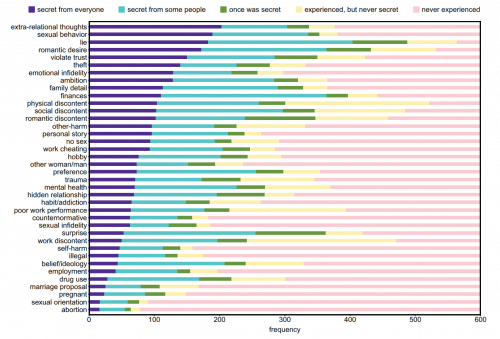Thinking about secrets hurts us more than hiding them from other people

It's no secret that we all have secrets. Maintaining them can be exhausting, but the reason for this is not what most researchers have always assumed. A new study redefines "secrecy" itself and offers an innovative explanation for the known connection between it and depression, anxiety and poor general health. The researchers believe that secrecy is mainly the intention to hide information, regardless of active concealment in the presence of others. And this hurts us by making us feel inauthentic, even when we are alone.
Michael Salfian, a physiologist from the Columbia University School of Business Administration, and his colleagues recently reported their findings in the online Journal of Personality and Social Psychology. In six studies, they asked 1,200 Americans via the Internet, as well as 312 people who were in Central Park in New York, about 38 categories of behavior or identity that are usually kept secret. In five of these studies, the respondents said that at the time they were hiding information belonging to an average of about 13 of these categories (including about five categories in which they had a secret that they did not reveal to anyone). The most common secrets are thoughts about relationships with another person outside the existing relationship, romantic desire (of free people) and sexual behavior (pornography consumption, fantasies, etc.). The attached chart details the distribution of the most common secrets. More information can be found atwww.keepingsecrets.org.

People said that when they are not interacting with others, they think about the secrets about twice as often as when they hide them in conversation. The more often their mind wanders to a particular secret, the more likely they are to report that it hurts them and that their health is poorer. Surprisingly, active concealment did not affect the general feeling at all - contrary to previous hypotheses. Four other studies that all asked couples online produced similar findings.
If you must keep a secret, Salafian suggests avoiding messing with it by practicing attentive awareness (mindfulness) or talking about the forbidden topic in anonymous internet forums.
